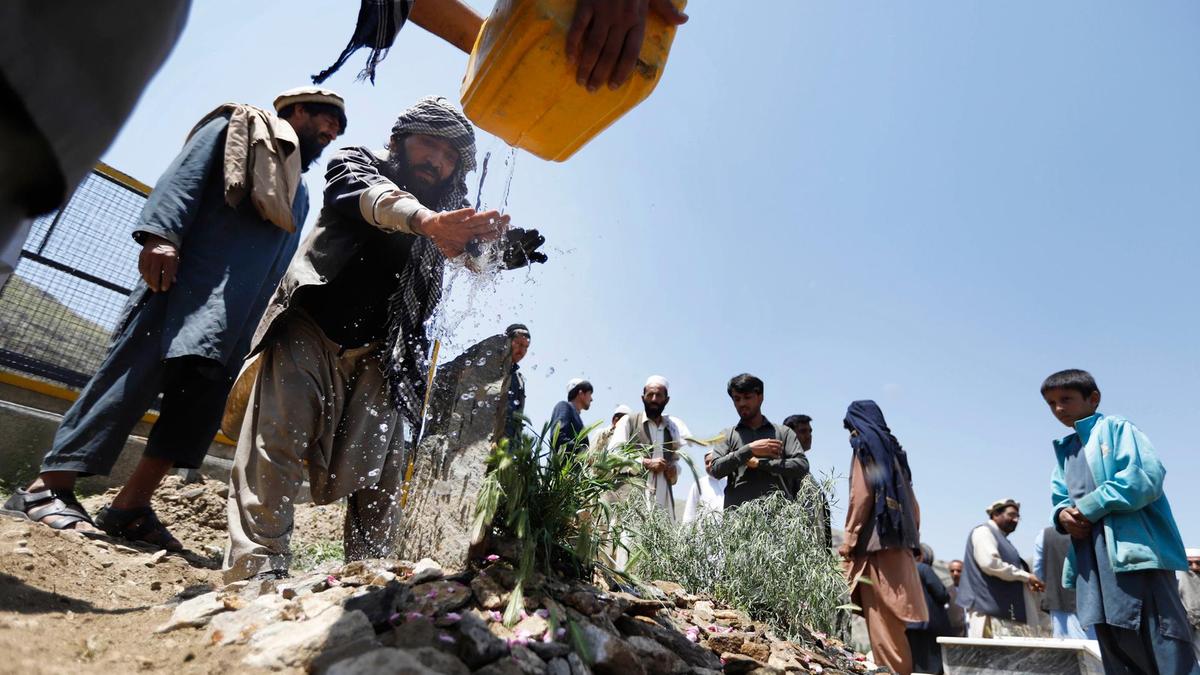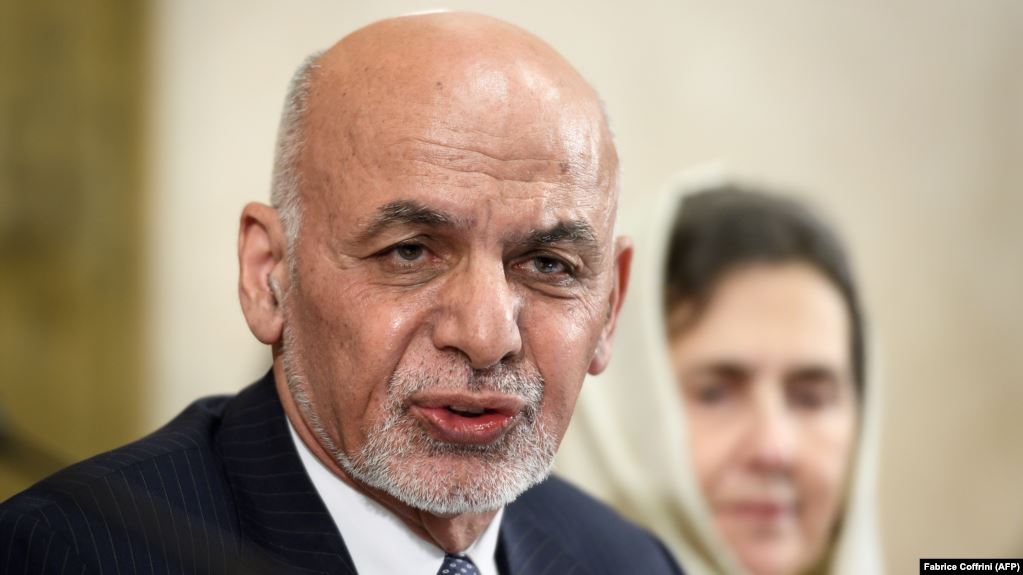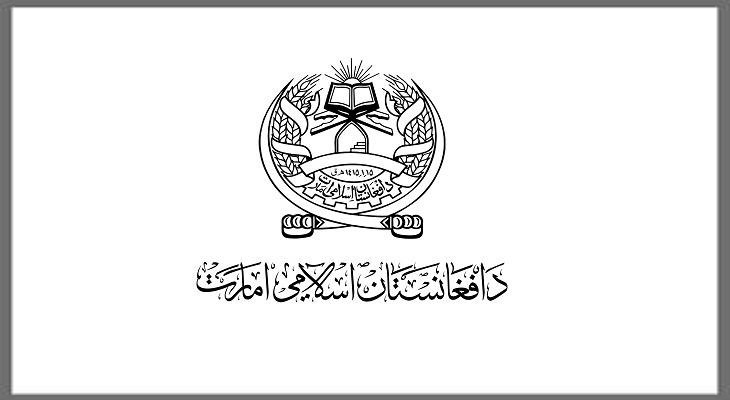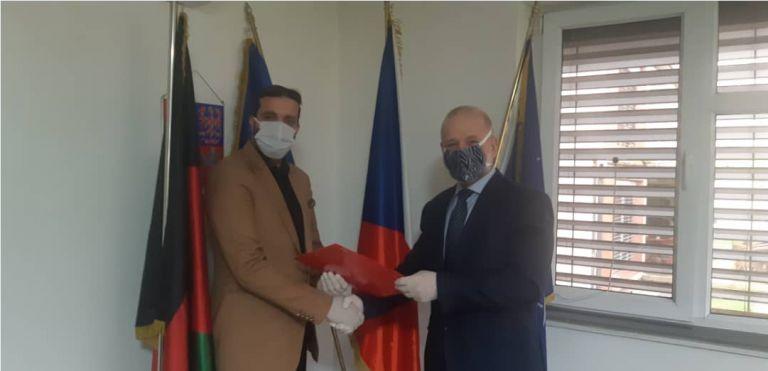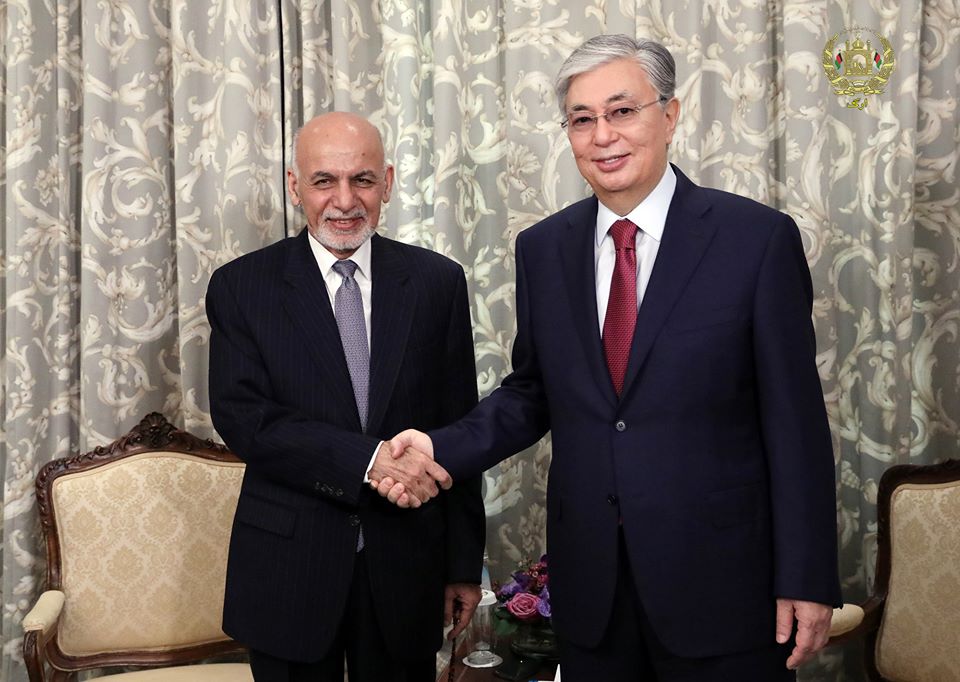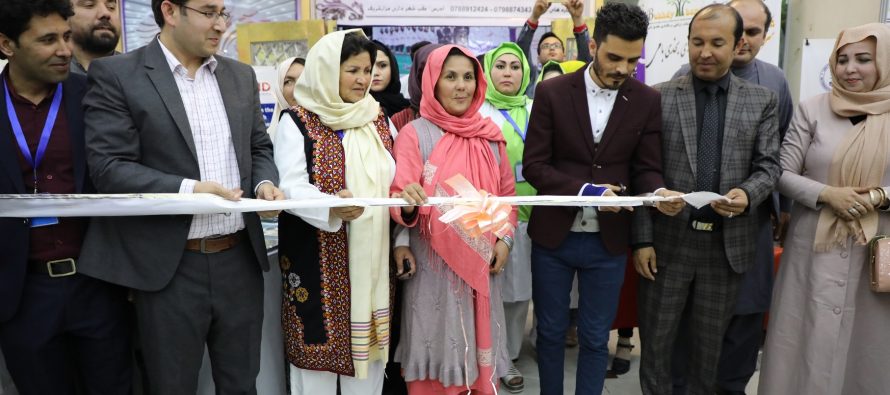The grief of Talib Jan Mangal is insurmountable. His voice quivers with emotion as the 66-year-old Afghan fields calls from around the world. They are all asking after his 26-year-old daughter Mina, who shot dead in broad daylight in the Afghan capital of Kabul on Saturday.
Publish dateWednesday 15 May 2019 - 22:17
Story Code : 185137
Mina Mangal: Family of murdered Afghan journalist accuse ex-husband
The daylight murder of an Afghan woman in Kabul highlights the country's gender-based violence problem
AVA- Despite his sorrow, Mr Mangal answers every calling journalist, repeating the same story. After all, his deceased daughter had once been a journalist – renowned across Afghanistan – and she would have done just that.
“It was around 7:30 am on Saturday and Mina had just left home heading to her office,” he told The National. “She was on the main road when two men on a motorcycle stopped and shot her."
Mina was so close to home that her mother heard the gunshots and asked her husband to go check. “I came out to see what the commotion was and found her on the street covered in blood,” he said. “She had died but I took her to the hospital.”
The violent death of a woman is not rare in Afghanistan but Mina’s murder has made waves across the country, a patriarchal society where rates of gender-based violence are high.
Mina, a former journalist, worked as a political adviser to the lower house of the Afghan parliament, and had recently left an abusive marriage. Her parents have accused her ex-husband and his uncle of killing her.
Over half of Afghan women have experienced physical or sexual violence from their partners, the UN estimates. Other international organisations suggest the figure could be as high as 87 per cent.
“About two years ago, we married Mina to her fiancé, they had been betrothed for nearly 10 years. However, he and his family were very violent and abusive to her,” Mr Mangal said. “She left her husband six days after their marriage.”
Since then her ex-husband had continued to threaten her, and two years ago kidnapped Mina, her family said.
“He and his relatives beat her and drugged her several times to make her unconscious and took her Paktiya province,” Mr Mangal said, referring to the eastern province where her ex-husband came from. “They tortured and beat her there.”
Despite concentrated efforts from various international rights groups and local civil society organisations, the country's record for gender base violence remains dismal.
“Unfortunately, Ms Mangal is not the only victim of cultural oppression in Afghanistan,” said Spozhmai Stanakzai, an Afghan activist with a background in law. “The number of such victims are higher in rural areas but since women outside of cities don’t have access to formal justice and social media, their tragedies go unnoticed.”
In conservative Afghan society, women face a range of gender-specific problems and threats including forced marriage, child marriage, abductions, domestic violence, self-immolation to escape domestic abuse and violence.
After Mina escaped her abusive relationship, she filed for divorce. But it was only finalised nine months ago, and not until she approached several courts, lawyers and prosecutors.
Divorce is socially unacceptable in Afghanistan and obtaining one is particularly difficult for women.
Mina was vocal in her journalism, and later on social media about the difficulties she faced in obtaining a divorce, as well as her experiences of being in a forced, abusive marriage, another taboo subject for Afghan women.
While there no accurate statistics on divorce rates in Afghanistan, women’s rights organisations say more women are opting abusive marriages than in the past.
Divorce remains difficult to obtain for women, who are only permitted to apply in certain circumstances. These are limited to instances where the husband suffers from an incurable disease, if he is unable to support his wife, or if he has been absent for more than three years without explanation.
Beyond the legal limitations, there are also social taboos against female initiated divorce. Moreover divorced women have few rights and risk losing custody of their children.
“Families are concerned with what people will say or how their daughters will be judged by the society so they chose abusive marriage over divorce or peaceful separation,” Ms Stanakzai said.
“There is a formal justice system at least in cities where women can go and file complaints to seek protection. But usually women are not treated very well in those offices; sometimes because of problems in the system and sometimes because of family pressures women are discouraged to raise their voice or seek justice. Some women are disowned by their own parents and families for seeking a divorce, a serious stigma in a country where it is difficult for women to live independently.
The police have not arrested or charged anyone for Mina’s death, though they consider her ex-husband a suspect. Her father now fears for the rest of his family. “Her husband previously threatened us,” he said. “I don’t know that will the government protect us.”
He hopes now that authorities will bring his daughter’s killer to justice “I participated the election and voted for this government, gave them my support, now it’s time for them to give me theirs,” he said.
“It was around 7:30 am on Saturday and Mina had just left home heading to her office,” he told The National. “She was on the main road when two men on a motorcycle stopped and shot her."
Mina was so close to home that her mother heard the gunshots and asked her husband to go check. “I came out to see what the commotion was and found her on the street covered in blood,” he said. “She had died but I took her to the hospital.”
The violent death of a woman is not rare in Afghanistan but Mina’s murder has made waves across the country, a patriarchal society where rates of gender-based violence are high.
Mina, a former journalist, worked as a political adviser to the lower house of the Afghan parliament, and had recently left an abusive marriage. Her parents have accused her ex-husband and his uncle of killing her.
Over half of Afghan women have experienced physical or sexual violence from their partners, the UN estimates. Other international organisations suggest the figure could be as high as 87 per cent.
“About two years ago, we married Mina to her fiancé, they had been betrothed for nearly 10 years. However, he and his family were very violent and abusive to her,” Mr Mangal said. “She left her husband six days after their marriage.”
Since then her ex-husband had continued to threaten her, and two years ago kidnapped Mina, her family said.
“He and his relatives beat her and drugged her several times to make her unconscious and took her Paktiya province,” Mr Mangal said, referring to the eastern province where her ex-husband came from. “They tortured and beat her there.”
Despite concentrated efforts from various international rights groups and local civil society organisations, the country's record for gender base violence remains dismal.
“Unfortunately, Ms Mangal is not the only victim of cultural oppression in Afghanistan,” said Spozhmai Stanakzai, an Afghan activist with a background in law. “The number of such victims are higher in rural areas but since women outside of cities don’t have access to formal justice and social media, their tragedies go unnoticed.”
In conservative Afghan society, women face a range of gender-specific problems and threats including forced marriage, child marriage, abductions, domestic violence, self-immolation to escape domestic abuse and violence.
After Mina escaped her abusive relationship, she filed for divorce. But it was only finalised nine months ago, and not until she approached several courts, lawyers and prosecutors.
Divorce is socially unacceptable in Afghanistan and obtaining one is particularly difficult for women.
Mina was vocal in her journalism, and later on social media about the difficulties she faced in obtaining a divorce, as well as her experiences of being in a forced, abusive marriage, another taboo subject for Afghan women.
While there no accurate statistics on divorce rates in Afghanistan, women’s rights organisations say more women are opting abusive marriages than in the past.
Divorce remains difficult to obtain for women, who are only permitted to apply in certain circumstances. These are limited to instances where the husband suffers from an incurable disease, if he is unable to support his wife, or if he has been absent for more than three years without explanation.
Beyond the legal limitations, there are also social taboos against female initiated divorce. Moreover divorced women have few rights and risk losing custody of their children.
“Families are concerned with what people will say or how their daughters will be judged by the society so they chose abusive marriage over divorce or peaceful separation,” Ms Stanakzai said.
“There is a formal justice system at least in cities where women can go and file complaints to seek protection. But usually women are not treated very well in those offices; sometimes because of problems in the system and sometimes because of family pressures women are discouraged to raise their voice or seek justice. Some women are disowned by their own parents and families for seeking a divorce, a serious stigma in a country where it is difficult for women to live independently.
The police have not arrested or charged anyone for Mina’s death, though they consider her ex-husband a suspect. Her father now fears for the rest of his family. “Her husband previously threatened us,” he said. “I don’t know that will the government protect us.”
He hopes now that authorities will bring his daughter’s killer to justice “I participated the election and voted for this government, gave them my support, now it’s time for them to give me theirs,” he said.
avapress.net/vdcexn8zfjh8vzi.1kbj.html
Tags
Top hits
